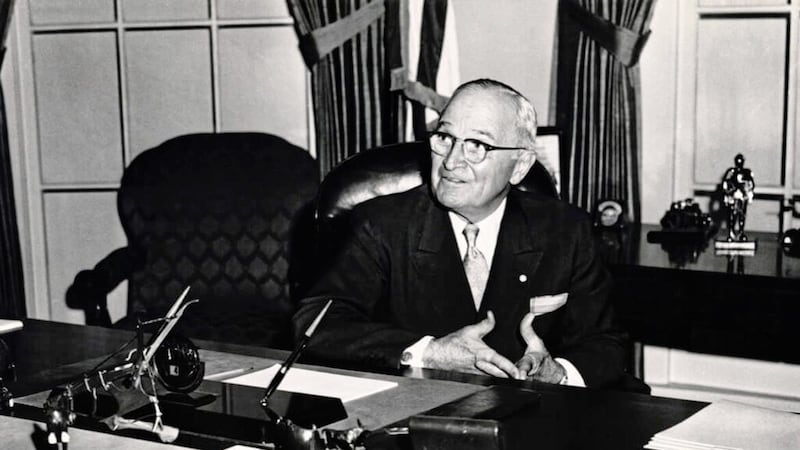JUST 77 years ago last Saturday the first-ever atomic bomb used in a conflict was dropped on the city of Hiroshima.
A statement from US President Harry Truman pointed out that the Japanese had begun "the war from the air" with their attack on Pearl Harbor, which brought the US into the Second World War.
That December 1941 air-strike killed 2,403 US personnel, including 68 civilians. Now, the President continued, the Japanese had been repaid many times over. He added ominously: "And the end is not yet."
Indeed it wasn't. There is no precise total, but 20,000 soldiers were killed at Hiroshima and between 79,000 and 146,000 civilians, a high proportion afterwards from radiation sickness. Truman warned that, if the Japanese did not surrender on Allied terms, "they may expect a rain of ruin from the air, the like of which has never been seen on this earth". Three days later, an atomic bomb was dropped on Nagasaki and killed between 39,000 and 80,000 people, almost all of them civilians. On August 15, Emperor Hirohito announced the surrender of Japan.
In a statement last weekend, marking Hiroshima Day, Ireland's Minister for Foreign Affairs Simon Coveney said the world was "facing heightened nuclear danger" and he added: "Russia has threatened use of nuclear weapons in the conduct of its war of aggression against Ukraine." Representatives of 191 governments, including Ireland, are attending a review conference in New York this month on the Non-Proliferation of Nuclear Weapons Treaty (NPT).
Between 1958 and 1961, Ireland presented a number of resolutions on nuclear disarmament to the United Nations General Assembly. Coveney's equivalent at the time, holding the title of Minister for External Affairs, was Frank Aiken (1898-1983) of Fianna Fáil. He was a driving force on the issue and in 1968 the Non-Proliferation Treaty was approved.
In his younger days, during Ireland's War of Independence, Aiken was Commandant of the Fourth Northern Division of the IRA which operated in his native County Armagh, south Down and north Louth. On June 17, 1922, members of the division carried out attacks on Protestant households in the Armagh townlands of Altnaveigh and Lisdrumliska, in which six people were killed and more than a dozen injured. Although Aiken did not take part in those attacks, he is said to have ordered them. They were intended as reprisals for the the killing of two men and sexual assaults on two women from the nationalist community.
Talking in the Dáil on October 23, 1929, about the attacks on the women, he said this was a republican household where he and Michael Collins had been given shelter. Referring to members of the Ulster Special Constabulary (USC), he said "a party of Specials with blackened faces" had raided the house and attempted to rape women who were present. One of the women was in a late stage of pregnancy: "I saw her the next day in the most frightful state, and I swore that if I could take it out of the skins of the men who did it I would do it."
None of those killed were USC members and I have seen no evidence that they were involved in the original attacks. In more recent times, on January 5, 1976, ten Protestant workmen were killed and another man wounded at Kingsmill, County Armagh, by a group calling themselves the South Armagh Republican Action Force, who said it was in response to killings by loyalists, especially the previous night's fatal attacks on six Catholics (there is no suggestion that the Protestant workmen had any role in that regard.)
The horrific Kingsmill massacre featured recently in public discourse, arising from an interview on the BBC podcast 'Red Lines', where Mark Carruthers asked First Minister-designate and Sinn Féin vice-president Michelle O'Neill if the campaign of violent resistance to British rule during the Troubles was "right at that time". She replied: “I think at the time there was no alternative, but now thankfully we have an alternative to conflict, and that is the Good Friday Agreement".
The point has since been made that it was possible to make political progress at the time by non-violent means, as demonstrated by John Hume, a key figure behind the agreement. Others would argue that, without war, there would have been no just peace. No doubt these exchanges will continue, but let's hope the peace can survive the protocol and, on a broader stage, that there will be no nuclear war.
Email: Ddebre1@aol.com; Twitter: @DdeBreadun








